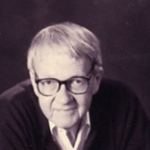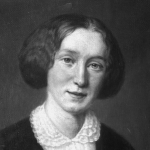The lights in the theater fail. The long racks
Of costumes abandoned by the other dancers
Trouble Celeste. The conductor asks
If she is sad because autumn is coming on,
But when autumn comes she is merely pregnant and bored.
On her way back from the holidays, a man
Who appears to have no face rattles the door
To her compartment. How disgusting, she thinks;
How disgusting it always must be to grow old.
Dusk falls, and a few drops of rain.
On the train window trembles the blurred
Reflection of her own transparent beauty,
And through this, beautiful ruined cities passing,
dark forests, and people everywhere
Pacing on lighted platforms, some
Beating their children, some apparently dancing.
The costumes of the dancers sway in the chill darkness.
Now sinking into sleep is like sinking again
Into the lake of her youth. Her parents
Lean from the rail of a ferryboat waving, waving,
As the boat glides farther out across the waves.
No one, it seems, is meeting her at the station.
The city is frozen. She warms herself
In the pink and scented twilight of a bar.
The waiter who serves her is young. She nods assent.
The conversation dies in bed. Later,
She hurries off to rehearsal. In the lobby,
Dizzy still with the weight of her own body,
She waits, surrounded by huge stills of herself
And bright posters announcing events to come.
Her life—she feels it closing about her now
Like a small theater, empty, without lights.




















Comment form: